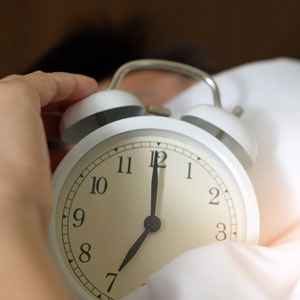Senior Health: Fighting Back Against Poor Sleep

A common challenge that many seniors face is getting a good night’s sleep. As you age, you may notice that you nap more during the day, feel tired earlier at night, have trouble falling asleep, or wake up in the middle of the night and have a hard time getting back to sleep quickly. All of these issues can interfere with your quality of life and your energy levels.
There can be many different factors that contribute to poor sleep. Trying to identify what specifically is plaguing you can help you come up with more effective solutions for feeling rested. Common causes include:
- Side effects of medications
- Sleep apnea
- Restless leg syndrome
- Nocturia (waking in the middle of the night to use the restroom)
- Pain
You should talk to your healthcare provider if you feel that any of these issues are negatively impacting your sleep or life. However, there are many strategies that you can try on your own to overcome sleep difficulties and get yourself back into a healthy sleep pattern.
Strategies for Improving Sleep
Create a Routine. Try to go to bed and wake up at the same time each day, even if you don’t have plans and could stay up or sleep in later. You want to get your body in a consistent wake and sleep routine and support your body’s circadian rhythm. Avoid taking long (or multiple) naps during the day if possible so you’re more tired come nighttime.
Stay active. Another way to feel more tired at night is to burn off excess energy during the day. Go for a long walk, do some cardio exercises, take a bike ride, dance to your favorite songs, or sign up for an exercise class. There are tons of online programs available, some for free. When you spend too much time being sedentary, your body isn’t ready for sleep.
Reduce distractions. Put down your phone, tablet, or e-reader at least an hour before bedtime. Turn off the television as well. Make sure that your room is cool, quiet, and dark when you’re ready to go to sleep. If you tend to have a lot on your mind that keeps you from drifting off, put a journal next to your bed and write down everything you’re thinking about so you can clear your mind.
Limit fluid intake. Focus on getting most of your fluids in the morning and afternoon. Give yourself a cutoff time at night, such as after dinner, or at 7 p.m. Don’t drink anything after that time, except maybe a sip or two of water right before bed. This will help to keep you from waking up to go to the bathroom as frequently.
Promote relaxation. Engage in activities to calm your mind and relax your body before you go to bed. This could include things such as meditating, listening to soft music, reading a book (hard copy, not digital), doing some gentle stretches, or taking a warm bath. Find what soothes you.
Implementing these changes in your day can have a positive impact on your sleep. An in-home care provider can help you stick with bedtime routines and assist with keeping you busy and active during the day, rather than napping. Remember that it can take some time to get your body readjusted to a healthy sleep schedule and overcome issues such as insomnia. Talk to your caregiver about how they can support you in improving your sleep.
Always Best Care provides quality senior services tailored to your specific needs and abilities. Contact us today at (855) 470-2273 to schedule a free consultation and learn more about how we can assist you in safely and comfortably aging in place.





